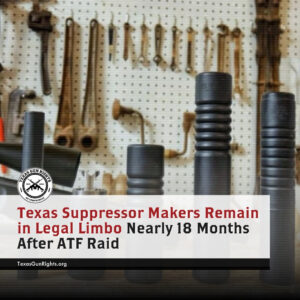We can’t win ’em all.
In a contentious ruling, the Supreme Court decided that individuals deemed by a court to pose a credible threat to the safety of another can be temporarily disarmed.
This decision upholds the federal statute 18 U.S.C. §922(g)(8), which prohibits firearm possession for those under domestic violence restraining orders, marking a significant move towards the potential for abuse under “red flag” gun confiscation laws.
Zackey Rahimi challenged the statute after being indicted for possessing a firearm while under a domestic violence restraining order.
Initially, the Fifth Circuit ruled in Rahimi’s favor, questioning whether the statute aligned with historical firearm regulations as required by the Supreme Court’s decision in New York State Rifle & Pistol Association v. Bruen.
Chief Justice Roberts, writing for the majority, emphasized the historical precedent of disarming individuals who pose a threat to public safety. The Court held that while the Second Amendment secures the right to keep and bear arms, this right is not unlimited and allows for regulations that prevent potential violence.
The ruling clarified that modern laws must align with historical practices of firearm regulation.
Justice Thomas stood alone in dissent, arguing that the majority failed to correctly apply the text, history, and tradition of the Second Amendment. He contended that the historical precedents cited did not justify the broad restrictions imposed by §922(g)(8).
This ruling reaffirms the government’s perceived ability to enforce firearm regulations aimed at preventing violence, but it also raises concerns about overreach and the misuse of restraining orders.
Chris McNutt, President of Texas Gun Rights, voiced strong opposition to the ruling, highlighting its potential misuse:
“Let me be clear, Rahimi is a scumbag. I firmly believe that if someone is dangerous, you should try them, convict them and, if guilty, lock them up and throw away the key. Anything less is a blatant disgrace. But this ruling is an assault on our rights protected by the Fifth and Second Amendment by disarming people who haven’t committed a crime.”
The Supreme Court’s decision sets a precedent for how future challenges to firearm regulations might be handled, particularly in dealing with “red flag” gun confiscation laws, where firearms can be seized without due process of the law, and without a crime being committed.
A bill to prohibit these types of laws in Texas is a legislative priority for Texas Gun Rights and was filed by Rep. Briscoe Cain during 88th legislative session (HB 1894), but the measure died after Republicans Justin Holland and Sam Harless walked out of a critical committee vote, empowering Democrats to kill the bill.







